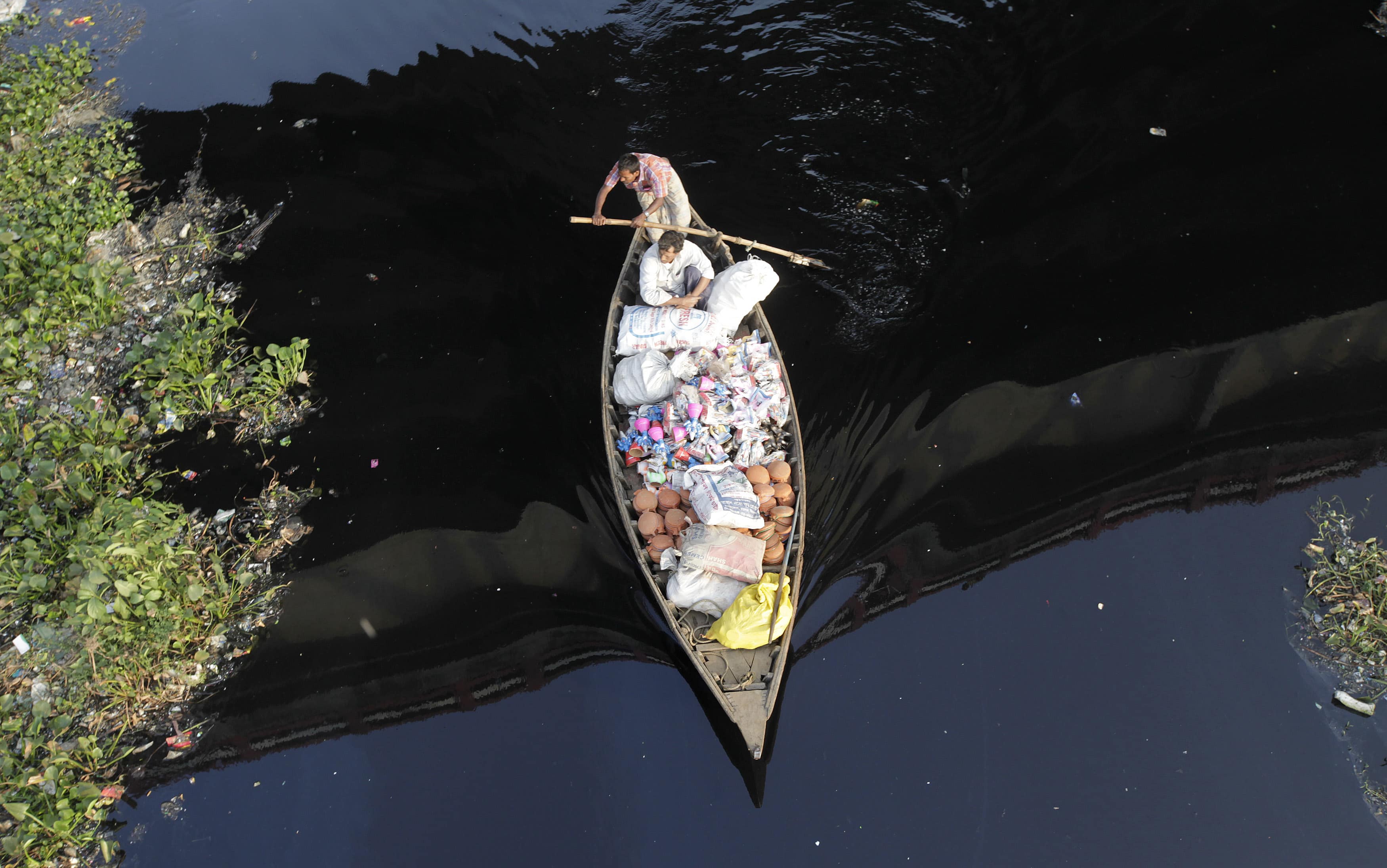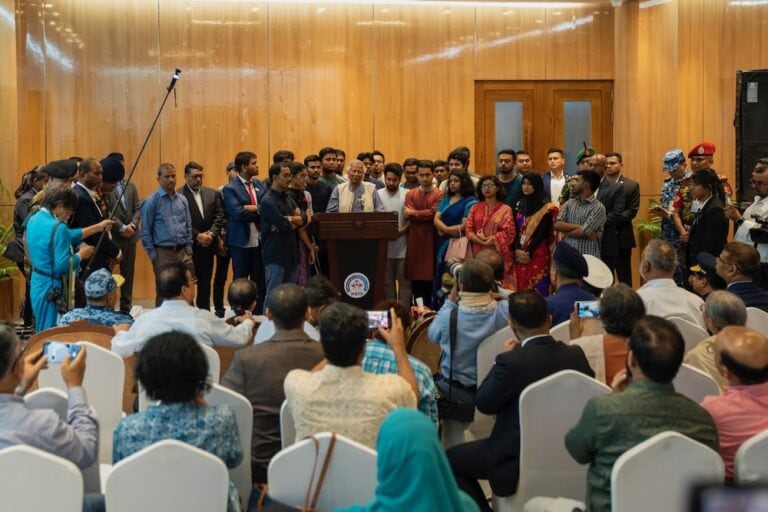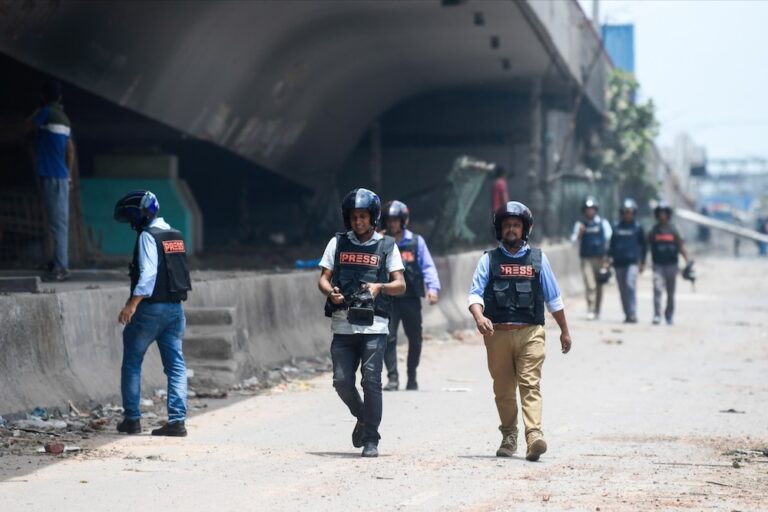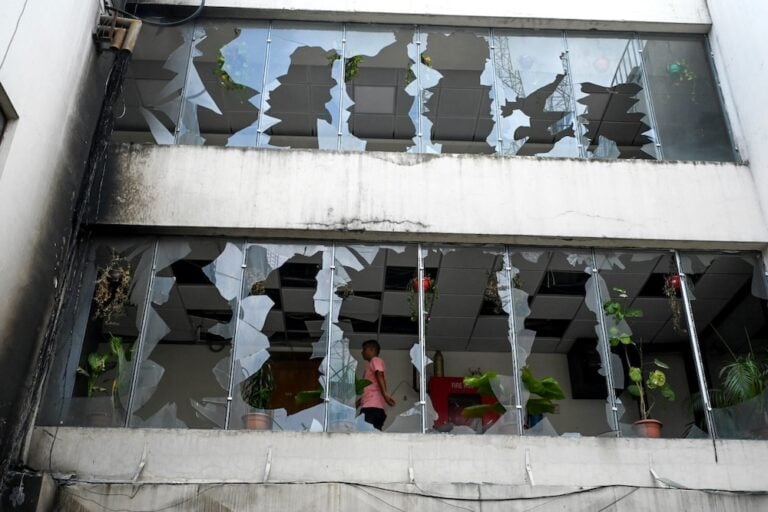ARTICLE 19 outlines how local communities and activists are using the Right to Information Act to hold Bangladeshi authorities accountable for creating a safe and sustainable environment.
On 6 February 2014, ARTICLE 19 outlined how local communities and activists are using the Right to Information Act to hold Bangladeshi authorities accountable for creating a safe and sustainable environment.
Freedom of expression and information are key in overcoming poverty and improving people’s lives. The availability and accessibility of information promotes transparency, ensures better governance and reduces inefficiency and corruption. Information gives people the opportunity to improve their own lives, participate in the decision-making processes that affect them, and hold their leaders to account.
In Bangladesh, local communities and activists are using the Right To Information Act to hold authorities accountable for creating a safe and sustainable environment.
THE CHALLENGE
Illegal encroachment into rivers and bodies of water by industry is a significant environmental problem in Bangladesh, leading to air, water and soil pollution. Industrial and medical waste is often dumped into bodies of water, threatening the health of surrounding communities.
Unregulated and illegal rice and wood husk mills pose a particular problem. According to Bangladeshi legislation, these mills should be sited away from inhabited areas due to the significant levels of pollution they emit. However, mills frequently flout environmental laws, leading to reported health problems in surrounding communities. Compounding this problem are endemic issues of corruption and a lack of transparency. The citizens of the Khulna district who live along the Rupsha River were particularly concerned that the increasing incidence of health problems in their community was tied to the proliferation of these mills.
LINKING ACCESS TO INFORMATION TO PROTECTION OF THE ENVIRONMENT
ARTICLE 19 has been working with people in Bangladesh to help them fight for better environmental protection. We have trained local communities to make use of the Right To Information Act. As a result, these communities, along with civil society and campaigners, are now asking the authorities what they are doing to implement national laws and create a safe and sustainable environment.
We have worked closely with people from across the country, including the vulnerable coastal districts of Bhola and Cox’s Bazar, the forested areas of Gazipur and Bagerhat, and the northern coastal areas of Khulna and Sathkhira. As the case of Masum Billah (told below) demonstrates, asserting their right to information has become a key tool in these communities’ ability to demand enforcement of environmental protection laws.
THE OUTCOME: “A NEW TOOL FOR HOLDING LOCAL GOVERNMENT AND AUTHORITIES ACCOUNTABLE”
Masum Billah is a community leader from the Khulna municipality. He has received training from ARTICLE 19 in how to use the Right To Information Act in Bangladesh. As a result, he has held discussions with the Khulna Development Authority (KDA) and the Department of Environment about the state’s obligations under Bangladesh’s Right To Information Act 2009.
Local communities along the Rupsha River approached Masum, concerned that rice and wood husk mills were being established within the KDA without the necessary clearances. This was in violation of environmental laws and was having a negative impact on their health. Masum filed an application with the Department of Environment asking for disclosure of a full list of mills and factories with and without clearance. The results revealed that half were operating without the proper clearance, leading to an increased risk of environmental pollution and threatening the health of the local inhabitants.
Masum Billah’s organisation, Social and Environment Movement (SEIAM), is now taking legal action against the Department of Environment and KDA, and campaigning for the removal of the illegally established mills.
“ARTICLE 19 has introduced me to a new tool for holding local government and authorities accountable to their responsibilities for protecting the environment and for greater disclosure.” -Masum Billah, Community leader in the Khulna municipality.



